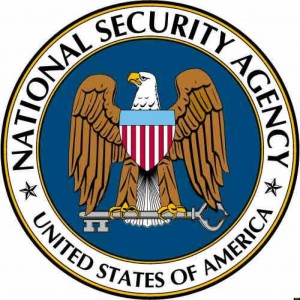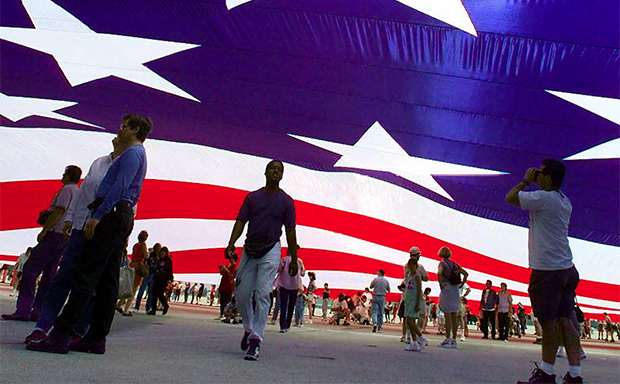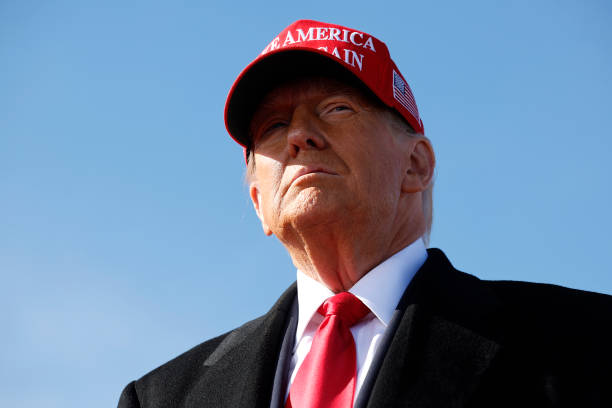(ThyBlackMan.com) President Barack Obama faces a daunting challenge in reining in the National Security Agency’s surveillance program. The proposals that he floated include more civilian oversight, greater transparency, and a panel of experts to recommend even more reforms before the year is out. The proposals are a good first step to bring some measure of public disclosure to an agency that has a long history of doing whatever it deems necessary to insure national security. That’s the biggest, and most daunting problem for Obama, the agency itself has pretty much been left to its own devices to define what it considers national security. And more troubling, who it deems national security risks and who it targets. This didn’t just start with the recent revelations of its super-secret, free-wheeling program that snooped on the phone conservations and emails of untold numbers of Americans.
For decades, the NSA has routinely monitored the phone calls, and before emails, the telegrams, of thousands of Americans. The rationale has always been the same, and Obama has repeatedly said it in in defense of the spy program, and that’s that the surveillance has done much to protect Americans from foreign threats and attacks. The NSA recently tossed out the figure of 42 terrorist acts that it supposedly nipped in the bud because of the spy program. The problem with that is the agency’s history. Its named targets in the past have not been solely alleged Muslim extremists, but Communists, peace activists, black radicals, civil rights leaders, and even drug peddlers.
have not been solely alleged Muslim extremists, but Communists, peace activists, black radicals, civil rights leaders, and even drug peddlers.
Before President Harry Truman established the NSA in a Cold War era directive in 1952, government cryptologists jumped in the domestic spy hunt with Operation Shamrock. This was a super-secret operation that forced private telegraphic companies to turn over the telegraphic correspondence of Americans to the government. The NSA kicked its spy campaign into high gear in the 1960s. The FBI demanded that the NSA monitor antiwar activists, civil rights leaders, and drug peddlers. The Senate Select Committee that investigated government domestic spying in 1976 pried open a tiny public window into the scope of NSA spying. But the agency slammed the window shut fast when it refused to cough up documents to the committee that would tell more about its surveillance of Americans. The NSA claimed that disclosure would compromise national security. The few feeble Congressional attempts over the years to probe NSA domestic spying have gone nowhere. Even though rumors swirled that NSA eyes were riveted on more than a few Americans, Congressional investigators showed no stomach to fight the NSA’s entrenched code of silence.
There was a huge warning sign in 2002 that government agencies would jump deeper into the domestic spy business. President Bush scrapped the old 1970s guidelines that banned FBI spying on domestic organizations. The directive gave the FBI carte blanche authority to conduct surveillance, and plant agents in churches, mosques, and political groups, and ransack the Internet to hunt for potential subversives, without the need or requirement to show probable cause of criminal wrongdoing. The revised Bush administration spy guidelines, along with the anti-terrorist provisions of the Patriot Act, also gave local agents even wider discretion to determine what groups or individuals they can investigate and what tactics they can use to investigate them. The FBI wasted little time in flexing its new found intelligence muscle. It mounted a secret campaign to monitor and harass Iraq war protestors in Washington D.C. and San Francisco in October 2003.
Another sign that government domestic spying was back in full swing came during then Bush National security Adviser Condoleezza Rice’s finger point at the FBI in her testimony before the 9/11 Commission in 2004. Rice blamed the FBI for allegedly failing to follow up on its investigation of Al-Qaeda operatives in the United States U.S. prior to the September 11 terror attacks. That increased the clamor for an independent domestic spy agency. FBI Director Robert Mueller made an impassioned plea against a separate agency, and the reason was simple. Domestic spying was an established fact that the FBI and the NSA had long been engaged in it.
During the debate over the creation of a domestic spy agency in 2002, even proponents recognized the potential threat of such an agency to civil liberties. As a safeguard they recommended that the agency not have expanded wiretap and surveillance powers or law enforcement authority, and that the Senate and House intelligence committees have strict oversight over its activities.
These supposed fail-safe measures were hardly ironclad safeguards against abuses, but they understood that domestic spying is a civil liberties nightmare minefield that has blown up and wreaked havoc on American’s lives in the past. The FBI is the prime example. During the 1950s and 1960s, FBI director J. Edgar Hoover kicked FBI domestic spying into high gear. FBI agents compiled secret dossiers, illegally wiretapped, used undercover plants and agent provocateurs, sent poison pen letters, and staged black bag jobs against black activists and anti-war groups.
A decade ago, Bush claimed that domestic spying posed no risk to civil liberties. The recent disclosure of the NSA’s unchecked spying on Americans mock that claim. The ball is now in Barack Obama’s court to insure that the program doesn’t trample on those liberties.
Written By Earl Ofari Hutchinson
One can find more info about Mr. Hutchinson over at the following site; TheHutchinson ReportNews.
Also feel free to connect with him through twitter; http://twitter.com/earlhutchinson

















There was a time when talking about email encryption services like TOR and personal cloud devices that let you keep your digital files at home like CloudLocker would have made you sound paranoid. Not any more. I look for the market for these kinds of products to explode as people become more concerned about protecting their own privacy.
Unfortunately, as we consider the liberty-for-security bargain we’re being offered by our government, our human brains are wired to make a terrible miscalculation about terror:
–>”This is Your Brain on Terrorism” http://libertymcg.com/2013/07/23/this-is-your-brain-on-terrorism/